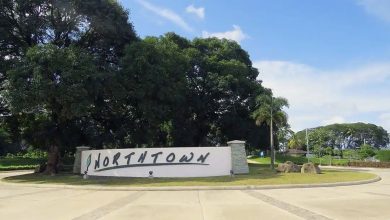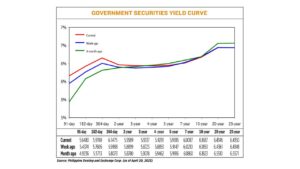Philippines remains on FATF ‘gray list’

Oct. 18, 2019. — REUTERS
By Luz Wendy T. Noble, Reporter
THE Philippines remained on the “gray list” of jurisdictions subjected to increased monitoring for “dirty money” risks, according to the Financial Action Task Force (FATF).
The global financial crime watchdog in a statement on Friday said the Philippines still needs to implement measures to address risks related to casino junkets, nonprofit organizations, and beneficial ownership.
However, the FATF acknowledged the Philippines’ progress in combating financial crimes in terms of policies related to sanctions against terrorism financing and increasing manpower of the Anti-Money Laundering Council (AMLC).
“Since June 2021, when the Philippines made a high-level political commitment to work with the FATF and APG (Asia/Pacific Group on Money Laundering) to strengthen the effectiveness of its anti-money laundering and counter financing of terrorism (AML/CFT regime), the Philippines has taken steps towards improving its AML/CFT regime, including by increasing the resources of its financial intelligence unit (FIU) and utilizing its targeted financial sanction framework for terrorism financing, ahead of any relevant deadlines expiring,” the FATF said in a statement on Friday.
The AMLC in August 2021 opened a new satellite office in Quezon City to accommodate their additional manpower. AMLC Executive Director Mel Georgie B. Racela said they have been hiring more financial intelligence analysts, investigators, and lawyers to boost the operational capabilities of their units on compliance as well as litigation and evaluation.
“Relevant Philippine authorities continue to work together in strengthening the country’s AML/CFT measures and in showing progress toward effectiveness,” Mr. Racela said in a Viber message.
Based on the FATF’s latest assessment, the Philippines needs to show it is implementing effective risk-based supervision of designated nonfinancial businesses and professions. These include jewelry dealers, real estate brokers and developers and service providers for financial businesses.
The dirty money watchdog also has to improve monitoring controls to mitigate financial crimes associated with casino junkets.
“PAGCOR (Philippine Amusement and Gaming Corp.) is the relevant agency implementing this action plan as it supervises and examines casinos with junket operations. PAGCOR is currently identifying risks posed by junket operations and will subsequently implement necessary measures to mitigate these risks,” Mr. Racela said.
The FATF also said it will continue to track the country’s progress in ensuring beneficial ownership information is streamlined and up to date for better access of law enforcement agencies.
It will also keep a close eye on the Philippines’ implementation of appropriate measures for nonprofit organizations (NPOs) without disrupting their legitimate activities.
Mr. Racela said the AMLC together with the Securities and Exchange Commission, the Department of Social Welfare and Development, and the Securities and Exchange Commission will be working on policy measures for nonprofit groups.
“Measures to be adopted are geared toward good governance of the NPO sector: registration with relevant authorities, annual reporting and compliance with legal requirements, financial transparency and accountability, and program planning and monitoring, among others,” he said.
The FATF will also keep a close eye on the country’s progress in registration requirements for money or value transfer services, as well as imposing sanctions against illegal operators.
Lastly, the watchdog will check if there is an increase in investigations and prosecutions related to money laundering cases, and the effectivity of the targeted financial sanctions framework for both terrorism financing and proliferation financing.
The Philippines will submit its next progress report to the FATF in May.
Officials are hoping that the Philippines will be removed from the FATF’s gray list by January 2023.
It was June 2021 when the country was once again included in the FATF gray list. While the FATF did not call for enhanced due diligence for transactions, the government earlier said some Philippine-related transactions have been subjected to more scrutiny.




